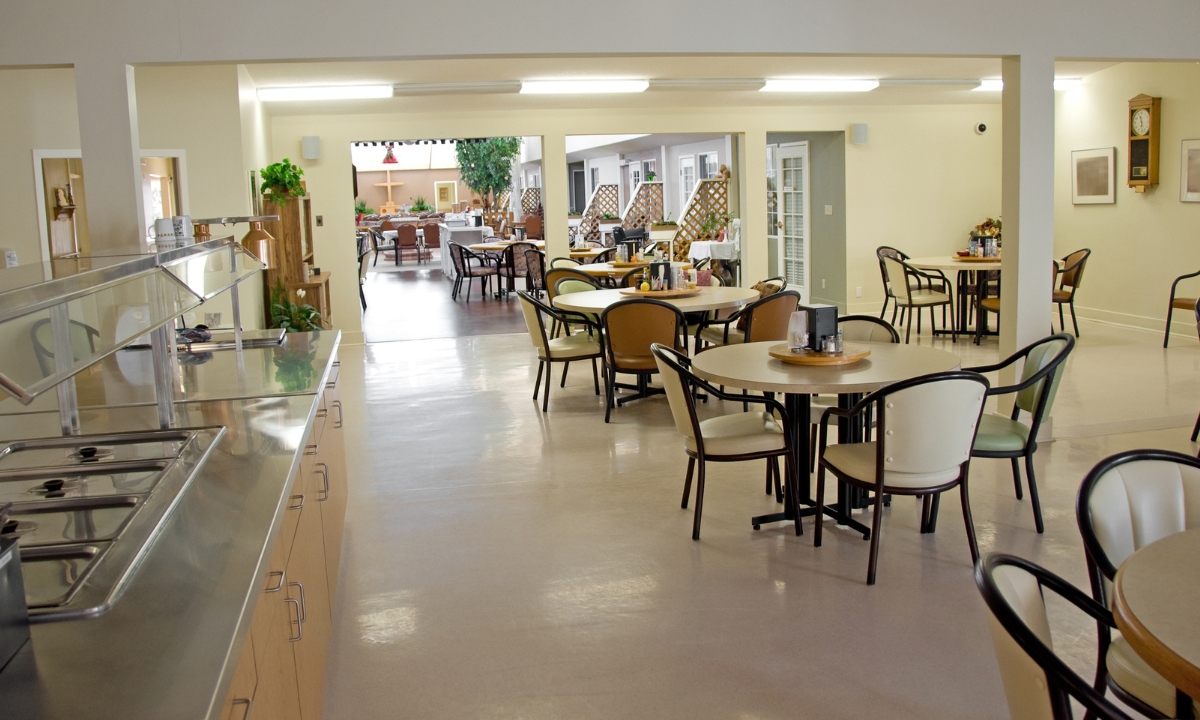Introduction
Moving from in-home care to an assisted living facility is a major decision. For some elderly people, it’s one they never have to make. They’re able to remain living at home with some home care assistance for the rest of their lives. For others, however, it’s a decision they may have to make sooner than expected. Living at home is what most people prefer, even if they need someone to come help them with tasks on a daily basis. Moving into an assisted living facility means that they need around the clock care, and your loved one may not yet be ready to accept that or what they perceive as a loss of freedom.
Is home care right for your loved one, or is it time to consider an assisted living facility? It’s not always an easy decision, especially if you’re uncertain what the right choice is. If you’re at this point in your life, Reliant Home Care Services can help. We can evaluate your loved one’s health, living situation, and other factors and advise you on what’s best for them. If home care is the right choice, we can help you create a care plan and provide professional care providers as needed. We also provide family caregiving support through respite care.
Let’s take a deeper look at in-home care, assisted living, and how to decide between the two.
Understanding Home Care
Home care services are designed to allow your loved one to continue living at home while getting the care they need. These services may be weekly and include things such as helping your loved one with exercises, taking them to doctor’s appointments, and assisting them with other tasks. For those who need more help, home care professionals may come every day. They can assist your loved one with getting dressed, eating meals, and other daily tasks.
Home care providers can even come sporadically or as needed. If you or another family member are acting as the primary care provider for your loved one, you may not need a professional every day. However, you still have your own life to live, and that means you will have appointments and other things you have to do. When these things come up, you can request a respite care provider. They will stay with your loved one while you run errands or simply take some time to rest.
One of the key components of elderly home care is a personalized plan of care. Reliant will work closely with you, your loved one, and other involved family members to create a plan of care that addresses all of your loved one’s needs. This plan will be updated as those needs change, and we will always work closely with you during any evaluations or changes. Our goal is to always make certain your loved one is safe, healthy, and respected.

What Is Assisted Living?
Assisted living, on the other hand, involves your loved one moving out of their home and into a care facility. Assisted living homes are not nursing homes—your loved one will still have some degree of independence. Most assisted living facilities are set up like apartments. Trained care providers are available 24 hours a day and will stop by to help your loved one on a set schedule. However, your loved one will have to call them if they need help. Because they live in their own apartment, it’s more difficult for a care provider to know that they need help if they’re unable to make that call, so there is some risk.
If your loved one needs to have a care provider on call 24/7, an assisted living facility may be more practical than home care. While they offer independent living, these facilities do often have dining rooms or meal delivery options, gyms or exercise programs, and social programs. Your loved one may even find that they’re more social than they would be at home because it’s easier to attend these events. On the other hand, some people who move into these facilities do feel trapped and become depressed, so it isn’t a decision to make lightly. Fortunately, there are assisted living alternatives that can help your loved one remain in their home while still getting the help they need.
Benefits of Home Care
Home care has a number of benefits that assisted living simply cannot match. First, there’s no need for your loved one to pack up, move, and get settled into a new place. They can keep to their usual routines, which is very helpful for those dealing with dementia and similar conditions. In fact, dementia home care plans typically revolve around creating routines, and it’s much easier to establish these routines if it’s done in a space your loved one is already familiar with.
Home care is also one of the most flexible and customizable senior care options. Your loved one receives personalized attention and a plan of care that is uniquely designed for them, their situation, and their environment. These customized care plans ensure that your loved one gets the right type of attention. While assisted living facilities will create custom plans to an extent, because there are so many other people there that need attention, your loved one may not always get everything they need. When you work with Reliant, our caregivers are 100% focused on your loved one.

Making the Right Choice for Your Loved Ones
Which of these elder care solutions is right for your loved one? It’s not always a clear choice. Moving to an assisted living facility does have some benefits, but using in-home nursing care also has many benefits. Before you can make a decision, you need to assess your loved one’s overall health and the care provided by both options.
One of the biggest changes between assisted living and home care is the environment. Living in the home they’ve lived in for years is likely going to be your loved one’s preference, but the big question is can they do so safely? If not, assisted living may be the best option, even if it’s one they don’t like. However, assisted living facilities are typically very nice. They still have privacy. No one will be coming into their space without an invitation, and they won’t be treated like an invalid. Many elderly individuals fear this is exactly what assisted living entails, but modern care facilities offer a wide range of activities and benefits.
At the end of the day, though, these facilities aren’t the home your loved one has made. They aren’t where the family gathered for holidays, birthdays, and other celebrations. “Home” is more than the structure—it’s the memories associated with it. It’s hard to let that go, especially if your loved one lived in the space for decades. It may have been where they raised their family, or they may have inherited it from another family member. No matter what the situation is, leaving it behind can have an emotional and psychological impact.
It’s not uncommon for people who move into assisted living to go through a period of depression. Their lives are changing, even if they understand that the move was the right decision. You should check in with your loved one often and discuss their emotional state with the team at the facility as well as their doctors if you are concerned. Depression can have an impact on physical health, so it’s something you need to take seriously.
Cost
Of course, cost is also a factor. Assisted living facilities can be quite costly, and it can be hard to find financial resources to help cover those costs. Paying the monthly rent plus other expenses can add up quickly, especially if your loved one is on a fixed budget. Affordable home care, on the other hand, is usually easier to work into a budget. There are financial resources available, too, that can help with the cost. One thing you do need to keep in mind, though, is that as your loved one ages and their health continues to decline, they’re going to need more and more care. Home care needs and costs are likely to increase over time, though they often remain less than the cost of assisted living.
Reach Out to Reliant Home Care Services to Learn More
If your loved one is in need of senior health services, it’s time to reach out to Reliant. We will work closely with you and your loved one to determine their needs, put together a personalized elder care plan, and ensure that your loved one continues to live safely in their home for as long as possible. To learn more about what we offer and how we can help your family, reach out to Reliant today.

